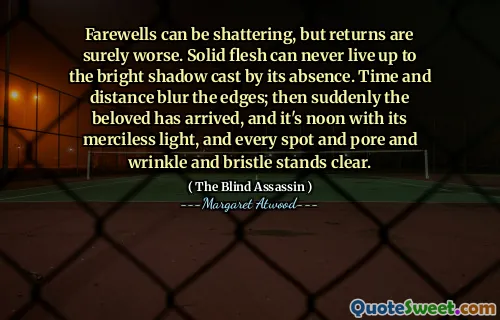Well, they bill by the minute, these lawyers, just like the cheaper whores.
In "The Blind Assassin," Margaret Atwood uses a provocative comparison to illustrate the transactional nature of legal services. By likening lawyers to "cheaper whores," she captures the sense that both professions operate on a model where their value is quantified by time rather than the quality of their work or moral standing. This statement reflects a critical view of the legal profession, suggesting that personal integrity may be compromised in favor of financial gain.
This quote serves to highlight themes of commodification and the complex relationships between money, power, and morality. Atwood's characterization invites readers to reflect on the ethics of various professions and the societal structures that prioritize profit over principle. It encapsulates a broader commentary on how certain professions, particularly those involved in legal disputes, can be seen as detached from genuine human connection, reduced instead to mere financial transactions.






